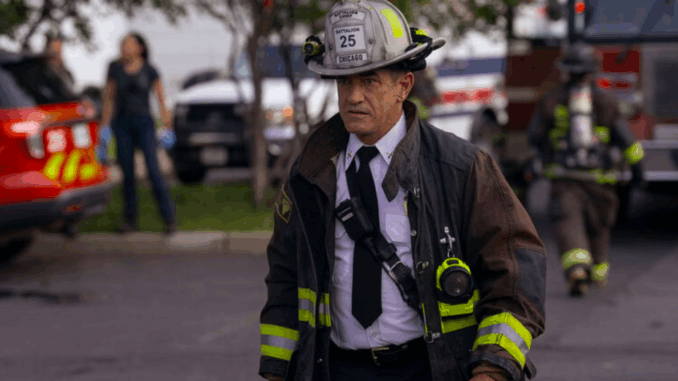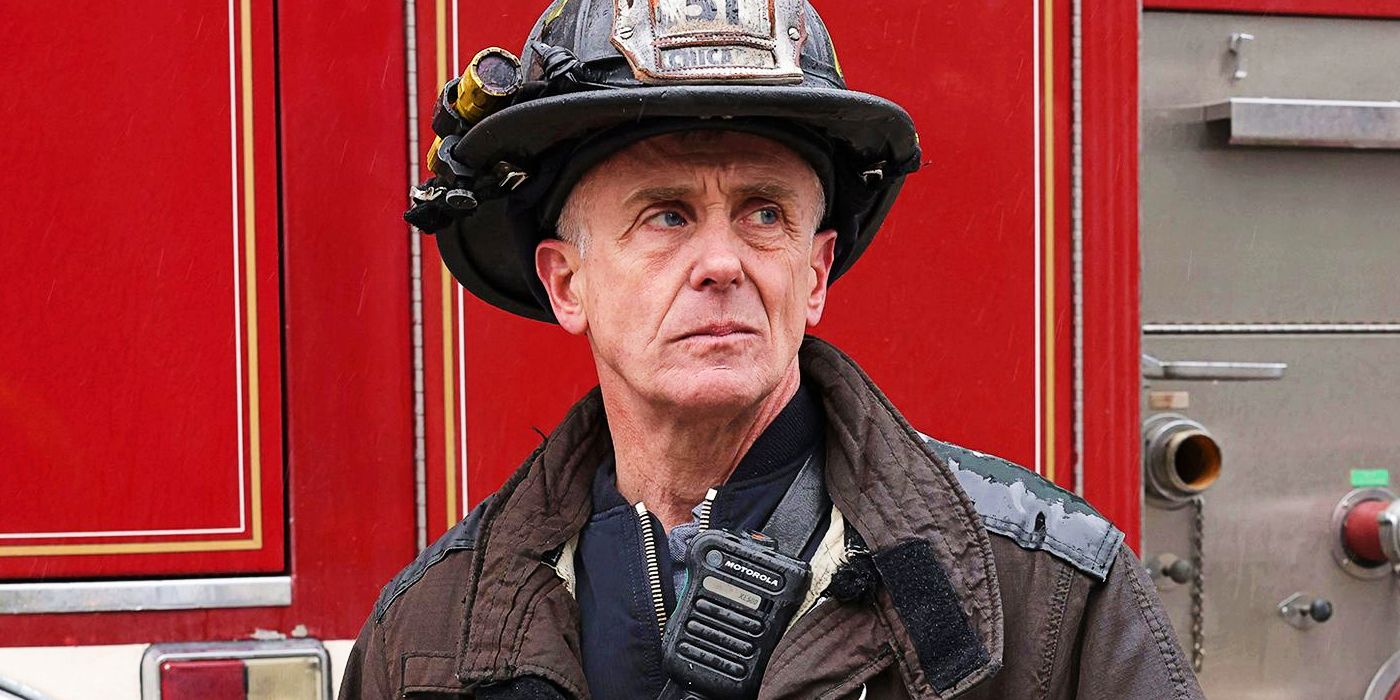
In a city built on grit and loyalty, Chicago Fire has never just been a story about emergency response. It’s a saga of unspoken promises, sacrifices made in silence, and bonds forged in flame.
When fans think of Firehouse 51, they often mention daring rescues or explosive action. But at its core, the show’s magic lies in something quieter—its unwavering portrayal of found family. Now, as the series pushes through Season 14, it’s clearer than ever: this crew doesn’t just survive together—they heal together.
The Pain They Don’t Talk About
There are moments between the action that leave the biggest scars. Sylvie Brett’s departure this season left Casey shattered all over again. But it also quietly unraveled something deeper—how each goodbye chips away at the soul of the firehouse. “You don’t replace someone like Brett,” Mouch says in a recent episode. “You just try to honor the space they left behind.”

The writing team has leaned into those silences. No sweeping speeches. Just glances, lingering pauses, and heavy footsteps in the hallway. Chicago Fire knows when to let the quiet speak volumes.
Gallo, Violet, and the Ghost of What Could’ve Been
One of the show’s most emotionally devastating subplots is also one of its most underappreciated: the slow-burning collapse of Gallo and Violet’s relationship. After the death of Chief Hawkins, Violet hasn’t just been grieving—she’s been unraveling. And Gallo, desperate to help but unsure how, represents a heartbreak we rarely see on TV: the ache of being unable to save someone from themselves.
More Than Smoke
Firefighting is a metaphor. For trauma. For resilience. For burning away the parts of you that no longer serve. Season 14 isn’t about stunts—it’s about survival. And as Firehouse 51 leans into its darker, rawer themes, one thing is certain: the fire may rage on, but this family isn’t backing down.
